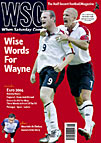 A relaunched domestic league has done little to divert the attention of a jaded Chinese public from Europe, writes Gary Bowerman, but sights are set high for the future
A relaunched domestic league has done little to divert the attention of a jaded Chinese public from Europe, writes Gary Bowerman, but sights are set high for the future
Footballing frustration hangs heavily over China. With a population of 1.3 billion, an economy fast outgrowing all others and an ingrained passion for football, the Chinese constantly berate their national team for their lowly 64th place in FIFA’s rankings. To compound the fans’ frustration, China’s recent tour of Europe yielded a scoreless draw with Andorra, a 1-0 win over Algeria and a thumping 6-0 defeat by Barcelona, while the Under-23 team failed to qualify for the Athens Olympics.
Despite the gloom, the Asian Football Confederation (AFC) is thinking long term. At its recent 50th anniversary celebrations, the AFC President, Mohamed Bin Hammam, pinpointed China and India as the two nations destined to take Asian football to the much-coveted “next level”. It’s a big ask, requiring big investment. The establishment of a 12-team Chinese Super League (CSL), which kicked off in May, was promoted by China’s football authorities as the boot up the backside the domestic game badly needs. Based loosely on the English Premiership, but with restrictions on the number of overseas players (and unique quirks, such as the stipulation that each team must have a Chinese goalkeeper), the CSL aimed to build on ten years of professional football in China. The fans, however, with little faith in their administrators or players, continued their love affair with the European leagues shown widely on television, and prepared for late nights watching Euro 2004. Meanwhile, China’s Dutch national coach, Arie Haan, criticised the CSL for trimming the number of teams from 15 to 12. With only 22 competitive matches in the season, Haan reasoned, it would be hard to bridge the quality gap when European leagues play at least 34 games.
So, the Chinese league season kicked off with most fans simply grateful that Kevin Keegan hadn’t got their star player, Sun Jihai, relegated with Man City – a fate Munich 1860’s Shao Jiayi was unable to avoid. Of the other high-profile exports, Everton’s Li Tie spent most of the season injured, while Manchester United’s young recruit, Dong Fangzhuo, was loaned out to Royal Antwerp.
Back in China, last season’s league championship for Shanghai Shenhua, featuring player of the season and former Rangers midfielder Jorg Albertz, got the team’s coach, Wu Jingui, a promotion to the national side’s coaching set-up. Hence the national champions began the close season Asian Champions League campaign without a coach and with many of their players away on international and Olympic duty. They duly lost their first three matches. Cometh the hour, cometh Howard “call me technical director, not head coach” Wilkinson. After some comically bad PR – it was announced he had signed a three-year contract when it turned out to be three months – he took over the reins at Shenhua. Wilkinson steadied a seasick ship and, during his short stay, won five of his seven matches. But his unwillingness to commit beyond mid-June (only one month into the new season) for personal reasons saw his contract terminated early.
The opening weeks of the new CSL were plagued by some woeful refereeing in matches involving top teams and rumours of tax evasion by players. The so-called “Black Whistles” affair has since subsided, but rumours of corruption persist and many view the league as little more than a tycoon’s battleground. The Shide Group, for example, has a stake in three of the 12 teams, Dalian Shide, Sichuan Dahe and Shenyang Ginde, while Jianlibao has vested interests in three others.
One bright light on the horizon is that the national team are top of their first-stage World Cup qualifying group after wins over Hong Kong, Kuwait and Malaysia. With Euro 2004 finished (this year, for the first time, the tournament’s official website had a Chinese language version), the focus is now on this month’s Asian Cup, to be held in China. The hosts will be expected not just to win it, but also to begin a concerted ascent up the FIFA rankings. Both objectives are far from certain. China have only once reached the final, in 1984 when they lost 2-0 to Saudi Arabia, and an early exit this time would dash chances of reaching the top 50 in the near future. Beyond that the ultimate golden goal will be to host, and find a team capable of winning, the next World Cup held in Asia, probably in 2018. But it’s likely be a big climb.
From WSC 210 August 2004. What was happening this month